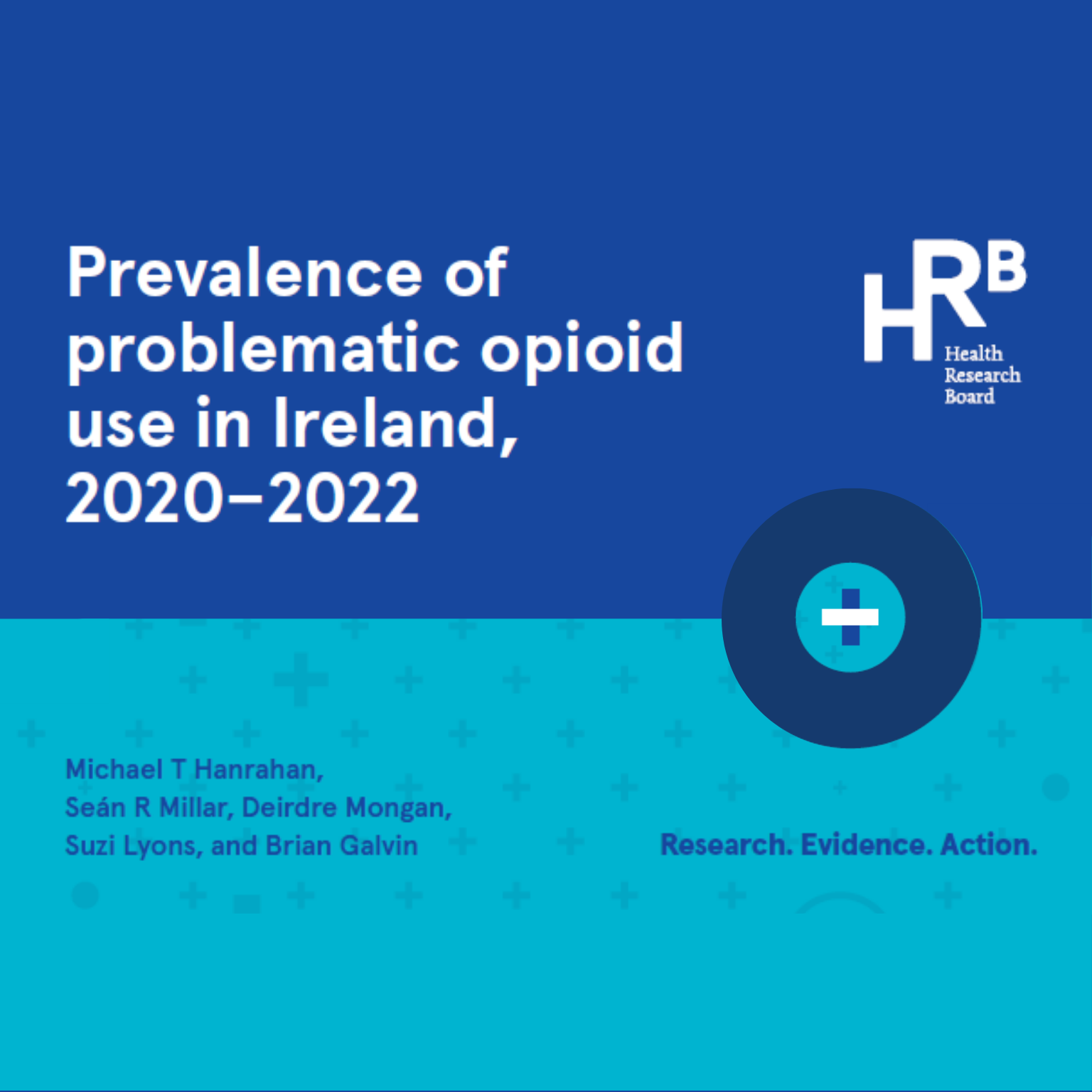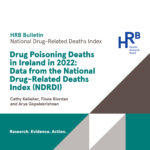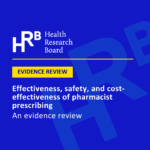HRB reports a continued decline in problem opioid use among younger people
The report, which was published today, also finds a sustained rise in use among older age group
3 min read - 16 Apr 2025

In 2022, it was estimated that approximately 19,460 people in Ireland had problem opioid use. The report finds that use among 15-34-year-olds continues to decline, while levels of problem opioid use among people aged 35-64 have increased, with over three-in-four problem opioid users in this category.
Commenting on the report, lead author Dr Michael Hanrahan, who was commissioned by the HRB to conduct this research at University College Cork, said:
“The continued decrease in opioid use among younger people, particularly in the 15-24 age group, is positive, and may be due to several factors. For example, we know from other studies that heroin, which is the main opioid used in Ireland, is viewed more negatively by young people. Also, improvements in addiction services may be helping to break the cycle of young people introducing their peers to opioids.
“The rise in opioid use within the 35-64 age group suggests an ageing cohort effect, as the proportion of those in this older age group has increased by almost one third since 2014. This increase is in line with the HRB’s 2023 drug treatment figures, which show that opioids were the main drug generating treatment demand for people aged 40 years or older, whereas in earlier years it was 35 years or older.”
Main findings
- In 2022, it was estimated that approximately 19,460 people in Ireland had problem opioid use
- A significant majority of these people were male (68%)
- Over three-quarters (75%) were in the older age group of 35-64-year-olds
- There were an estimated 11,100 problem opioid users in county Dublin in 2022, a rate over three times higher than in the rest of Ireland
HRB Chief Executive Dr Mairead O’Driscoll concludes:
“The HRB continues to provide a clear picture of the level of drug use within the population and trends among users. This enables policy makers and service providers to evaluate the effectiveness of interventions and predict where action is needed.”
ENDS
For more information or interviews please contact:
Suzanne Kenny, Communications Officer, Health Research Board
e skenny@hrb.ie m 085 8500494
Notes for editors:
The HRB commissions this type of research for the Department of Health in line with the current government strategy, ‘Reducing Harm, Supporting Recovery: A health-led response to drug and alcohol use in Ireland 2017-2025’, which aims to develop sound and comprehensive evidence-informed policies and actions. The data sources used for the analysis were derived from opioid substitution treatment records from the Central Treatment List and the Irish Probation Service.
To learn more about the HRB’s work in the area of drugs you can visit the HRB Drugs Library.
The Health Research Board (HRB) is Ireland’s lead funding agency supporting innovative health research and delivering data and evidence that improves people’s health and patient care. We are committed to putting people first, and ensuring data and evidence are used in policy and practice to overcome health challenges, advance health systems, and benefit society and economy.
Publication: Prevalence of Problematic Opioid Use in Ireland 2020-2022
3 min read - 16 Apr 2025



